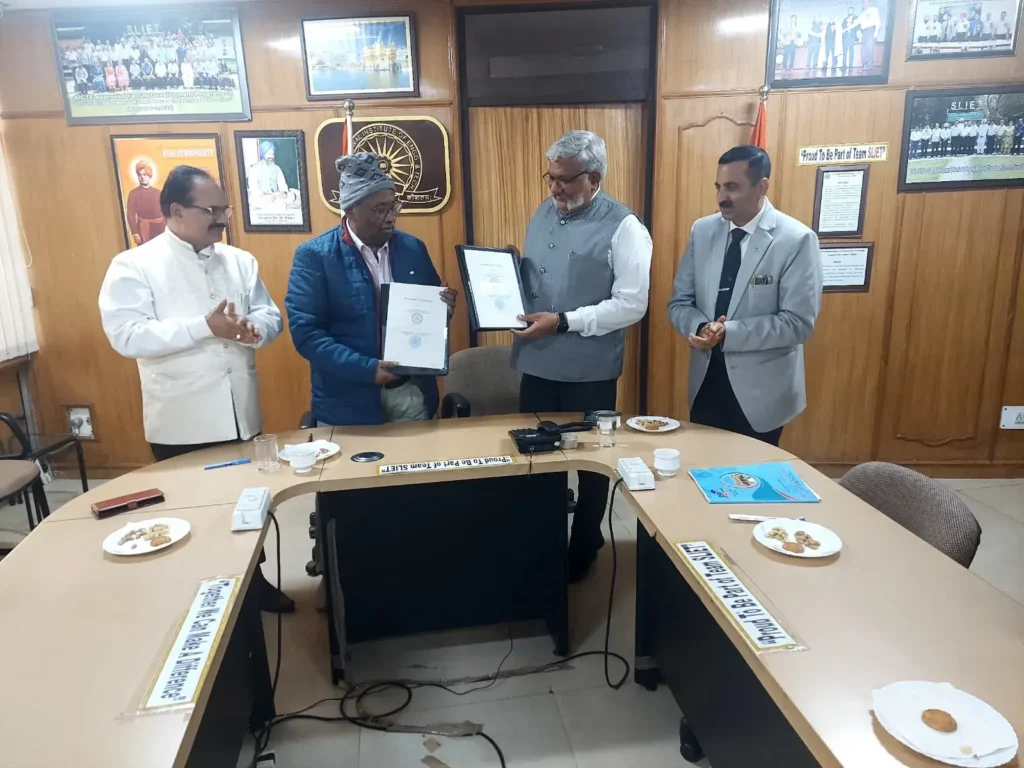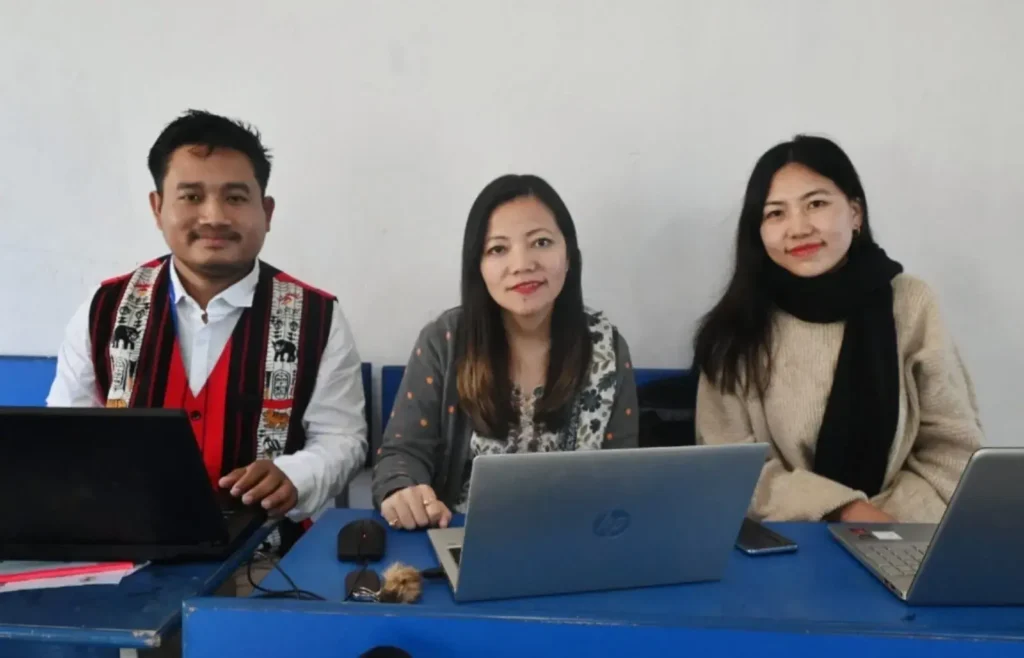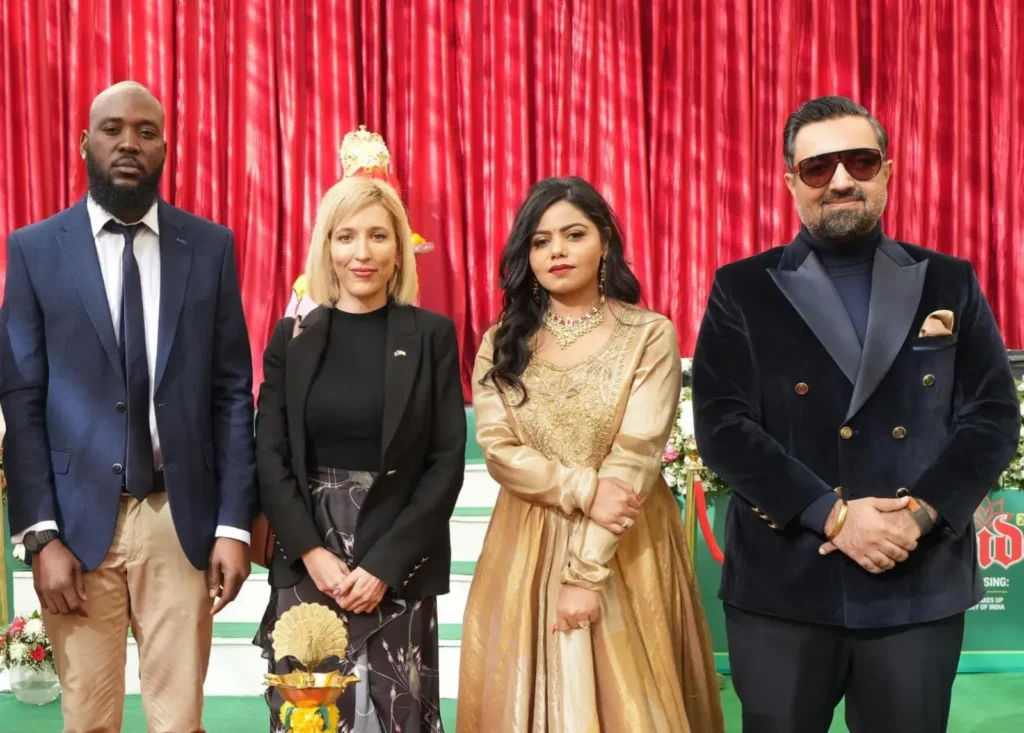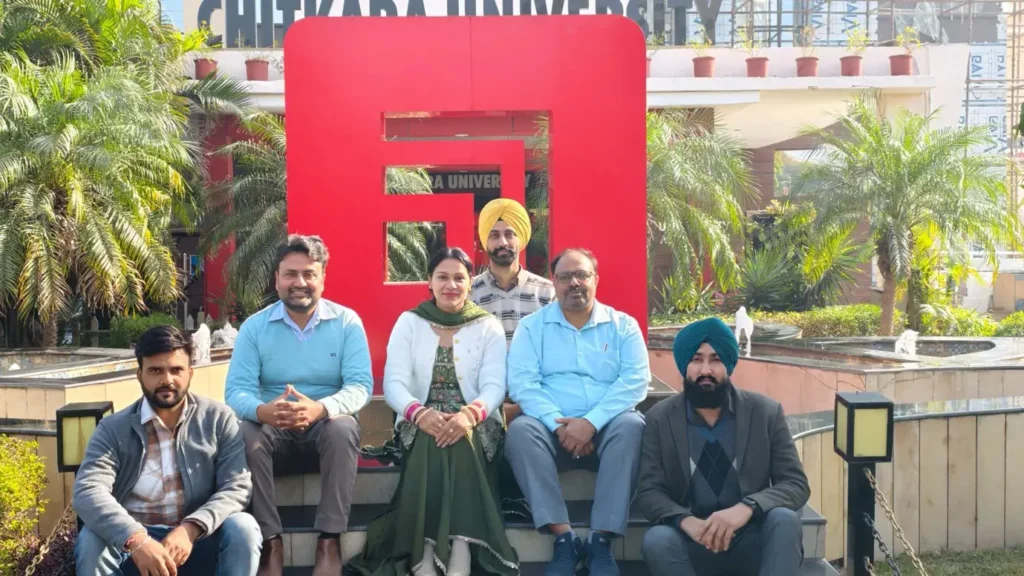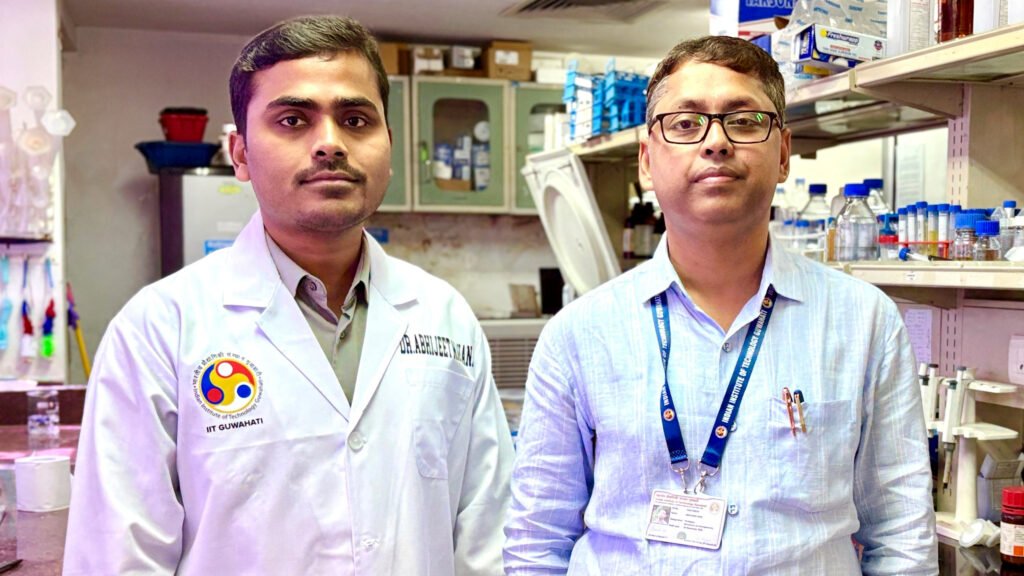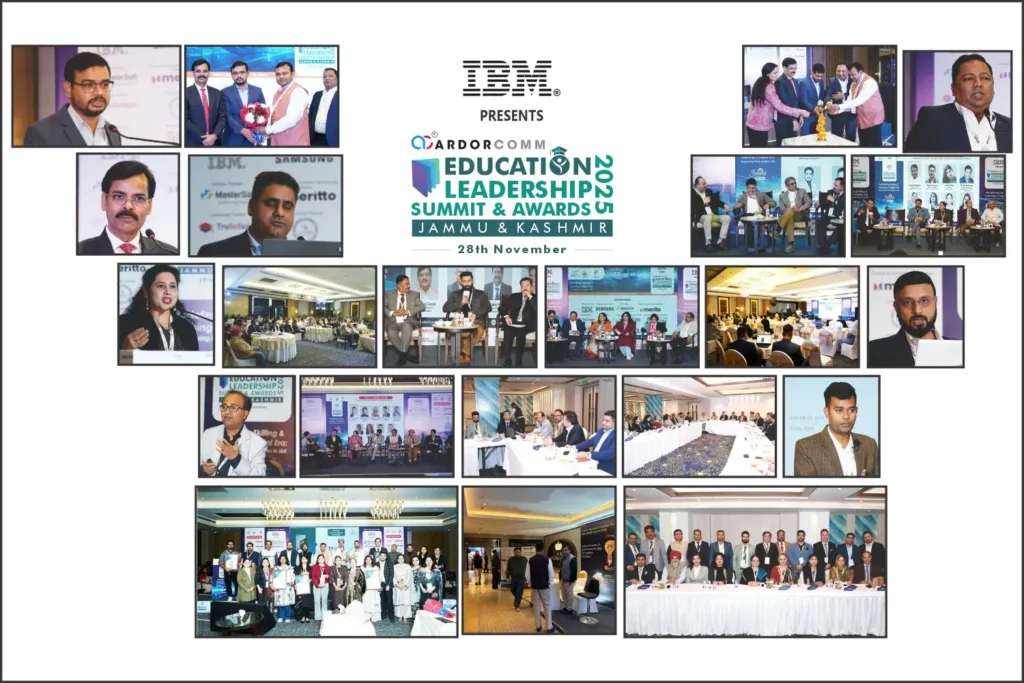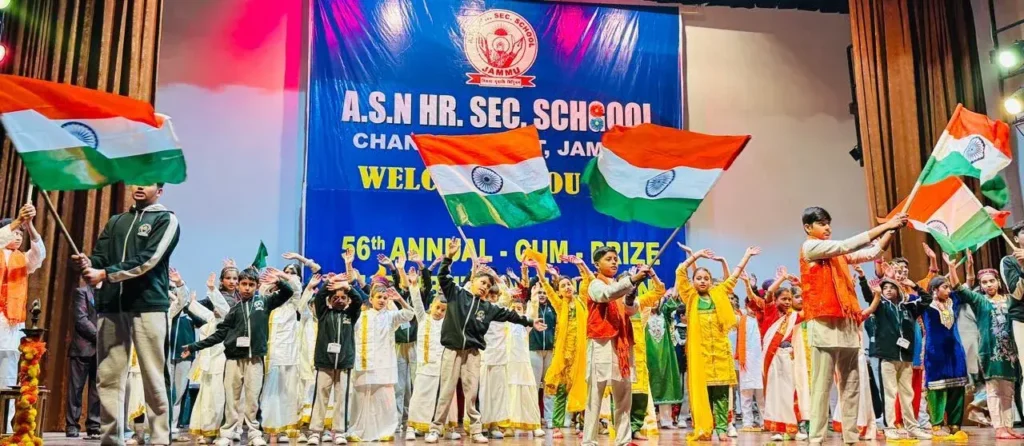Theme: “Redefining Skilling & Learning in Digital Era: Empowering Future Leaders in J&K” Jammu, 28th November 2025: ArdorComm Media Group successfully hosted the ArdorComm – Education Leadership Summit & Awards 2025 in Jammu, bringing together distinguished educators, policymakers, corporate leaders, and innovators for a transformative dialogue on the future of education. The summit centered around the theme “Redefining Skilling & Learning in the Digital Era: Empowering Future Leaders in J&K”, highlighting the region’s growing momentum in adopting innovative, technology-driven learning models. Government Support and Encouragement The summit received enthusiastic support from esteemed government leaders of Jammu & Kashmir. Shri Surinder Kumar Choudhary, Hon’ble Deputy Chief Minister (Public Works (R&B), Industries & Commerce, Mining, Labour & Employment, and Skill Development Departments), and Ms. Sakeena Itoo, Hon’ble Minister for School Education, Higher Education, Health & Medical Education, and Social Welfare Department, conveyed their best wishes for the event, applauding ArdorComm’s efforts to foster meaningful discussions on skilling, employability, and digital empowerment. Inaugural Session and Keynote Addresses The inaugural session set the tone for a day of knowledge sharing and collaboration. Kumar Chandan Anand, Founder, CEO & Group Editor of ArdorComm Media Group, delivered the welcome address, emphasising the importance of innovation and collaboration in shaping a digitally empowered education ecosystem in J&K. The session was graced by Guest of Honour Shahzad Alam, IAS, Director – Employment & Skill Development and MD – Mission YUVA, Govt. of J&K, who highlighted government initiatives to strengthen youth employability. Keynote speakers Dr. S. K. Rathor, Founder, Chairman & MD, SANFORT Group of Schools, and Gagan Agrawal, Head – Academic Partnerships (North & Central India), IBM Career Education, shared valuable insights on redefining skilling and learning frameworks for the digital era. Panel Discussions The summit featured five in-depth panel discussions: Digital India in the Himalayas: Bridging the Tech Divide for Learning Equity – Moderated by Dr. Meenakshi Sharma, Director, Institute of Management Sciences, Jammu, with panelists Dr. Balbinder Singh Pathania, Prof. (Dr.) Hanan Khalid Khan, Prof. (Dr.) C.V. Gopinath, Dr. Atul Hans, Anu Kaushal, Ikkz Ikbal, and Rajeev Sharma. Fostering Future Leaders: How Values-Based Education Can Inspire Peace & Progress – Moderated by Arvind Mahajan, Chairman & MD, Spring Dales English School, Kathua, with panelists Ritesh Kapoor, Tarvinder Kaur, Irtiqa Kaushfi, Ishfaq Sayeed, and Riyaz Kathjoo. Last-Mile Learning: Leveraging Innovation to Make Education Inclusive and Equitable – Moderated by Er. Dinesh Gupta, Dean Academics, Yogananda College of Engineering & Technology, Jammu, with panelists Gagan Agrawal, Prof. (Dr.) Manish Kumar Srivastava, Prof. (Dr.) Sandhya Tiwari, Prof. Vandana Sharma, and Prof. Savita Nayyar. Skills to Success: Reimagining Curriculum with Insights that Drive Enrollment to Employment – Moderated by Siddhartth Singh, Director, Meritto, with panelists Prof. Saket Kushwaha, Rehman Malik, Dr. Anup Shukla, Dr. Kapil Kapoor, and Dr. Shamim Ahmed Bandey. Educators as Changemakers: Empowering Teachers with Tools, Tech & Training – Moderated by Dr. Adit Gupta, Group Director, MIER Group of Institutions, with panelists Prof. Naseer Iqbal, Dr. Subrat Sharma, and Prof. Sanjay Guleria. Industry Speeches The summit featured six prominent industry addresses, delivered by Susheel Kumar Bhat (Samsung India), Urvashi Rana (PowerSchool), Siddhartth Singh (Meritto), CA Mayur Zanwar (TruScholar), Gagan Agrawal (IBM Career Education), and Mustak Rogatya (MasterSoft ERP), focusing on technology integration, AI adoption, digital infrastructure, blockchain, and skilling in the education ecosystem. Roundtable Discussion A dedicated roundtable on “Technology for Teachers: Empowering Educators with Tools, Training & Tech” brought together 24 senior education leaders and industry experts, including Susheel Kumar Bha, Pradeep Nayar, Hitesh Mahajan, KCS Mehta, Shatambary Sharma, Rohini Aima, Isher Singh, Mohammad Altaf Bhat, Indu Kapoor, Prashant Salaria, Dr. Vikesh Kaur, Arvind Mahajan, Dr. Atul Hans, Er Ashraf, Baba Nazrul Islam, Adv. Gambhir Dev Singh Charak, Adv. Kunal Saini, Pragati Sharma, Ritesh Kapoor, Ishfaq Sayeed, Lokesh Kumar, Ikkz Ikbal, Malik Shabir Ahmad, and Rajeev Sharma. Discussions revolved around empowering educators with tools, training, and technology to enhance teaching and learning outcomes. ArdorComm Education Leadership Awards 2025 The highlight of the summit was the ArdorComm Education Leadership Awards 2025, recognising excellence across six categories: Preschools, School Education, Higher Education, Skills & Training, EdTech Startups, and EdTech Corporates. The awards honoured educators, institutions, and organizations for their innovation, leadership, and transformative impact on learning and employability outcomes. Looking Ahead The summit concluded with renewed commitment among all stakeholders to continue driving innovative, technology-enabled, and value-based learning initiatives in Jammu & Kashmir. ArdorComm Media Group reaffirmed its mission to foster collaboration, recognition, and knowledge sharing, shaping a brighter future for education in the region and across India. Event Glimpses: https://ardorcomm-media.com/aelsa/aelsajammu-glimpses/ Event Website: https://ardorcomm-media.com/aelsa/aelsajammu/

